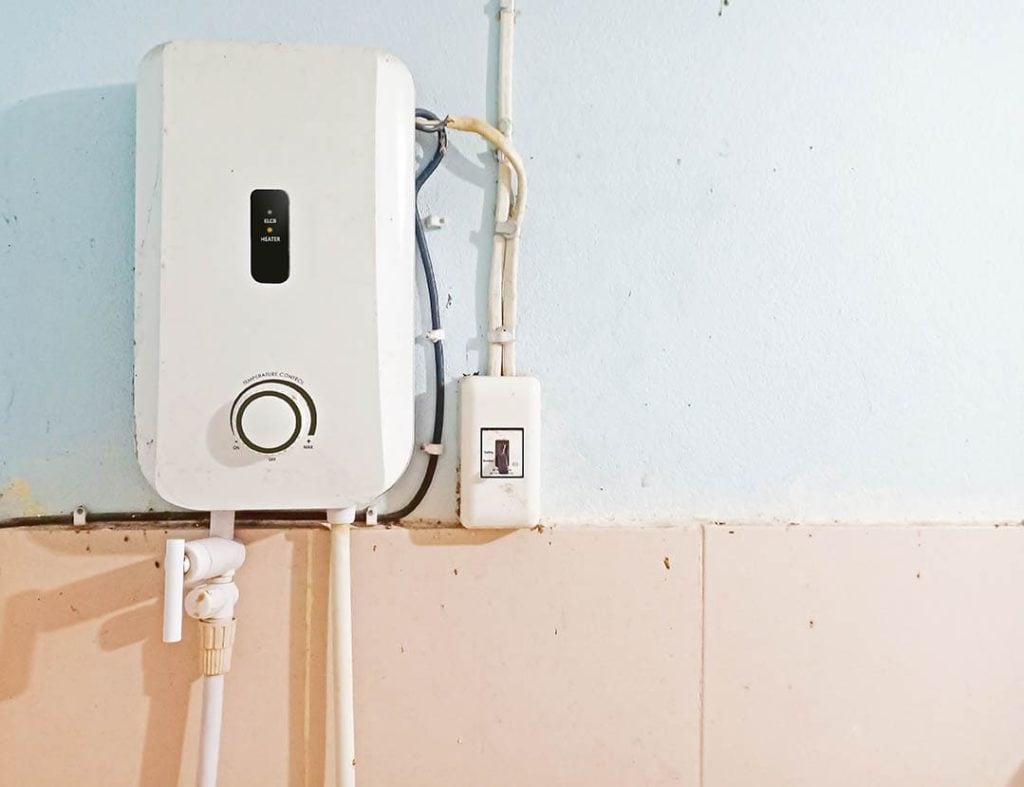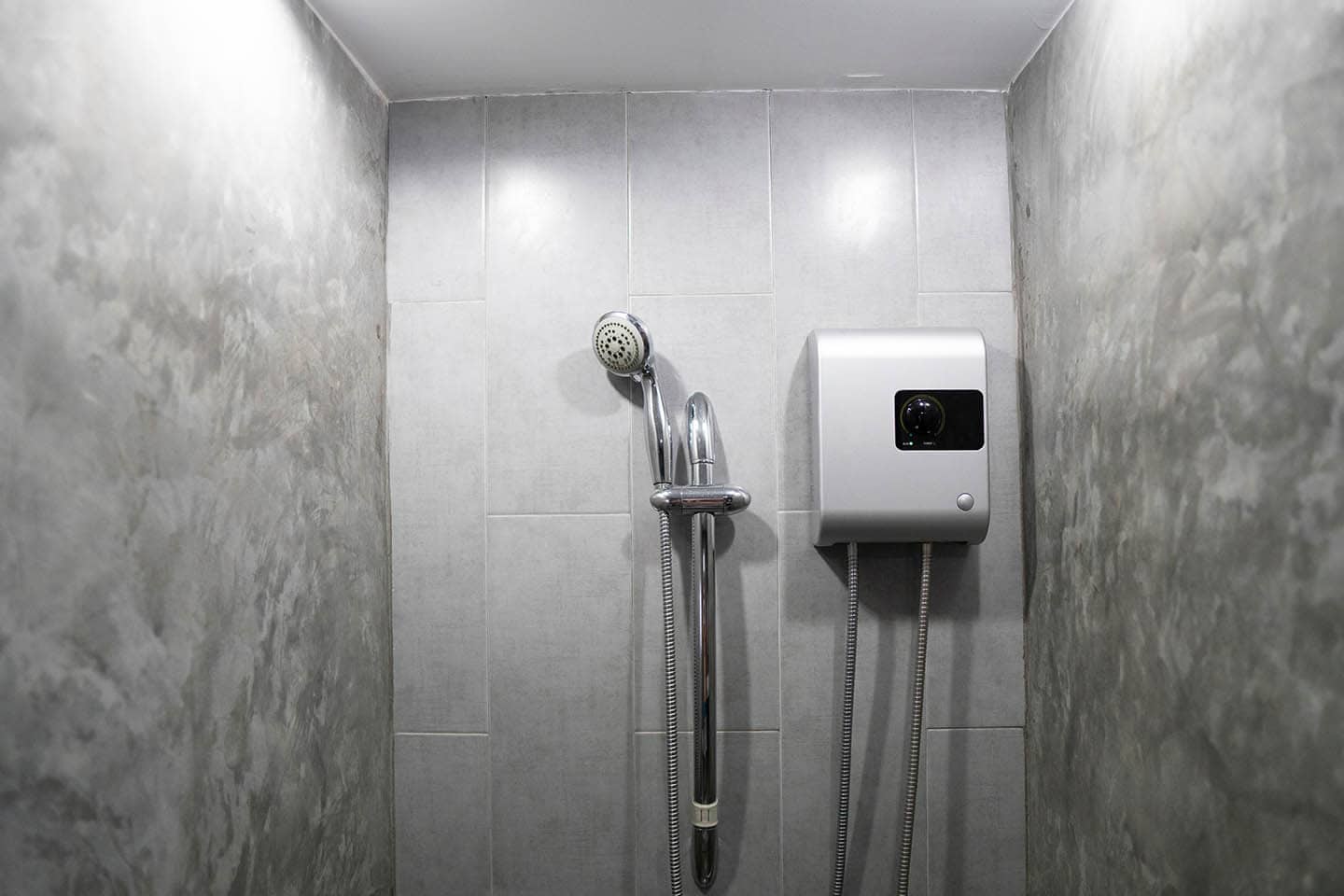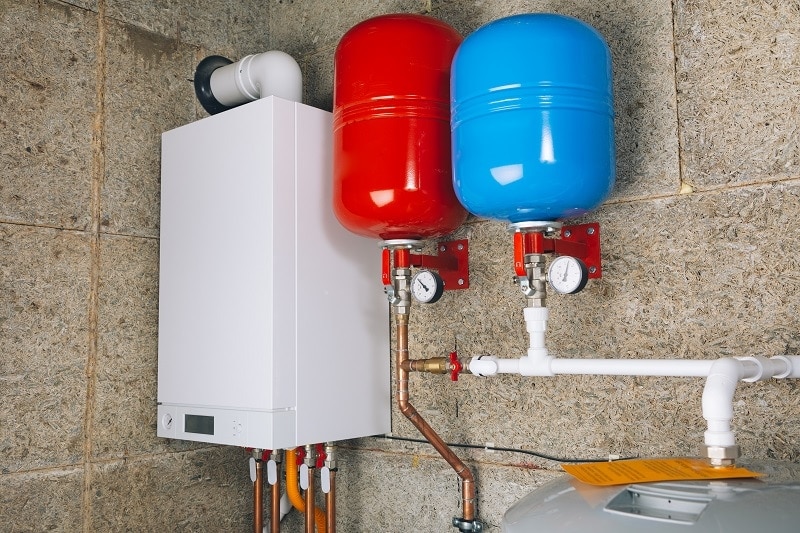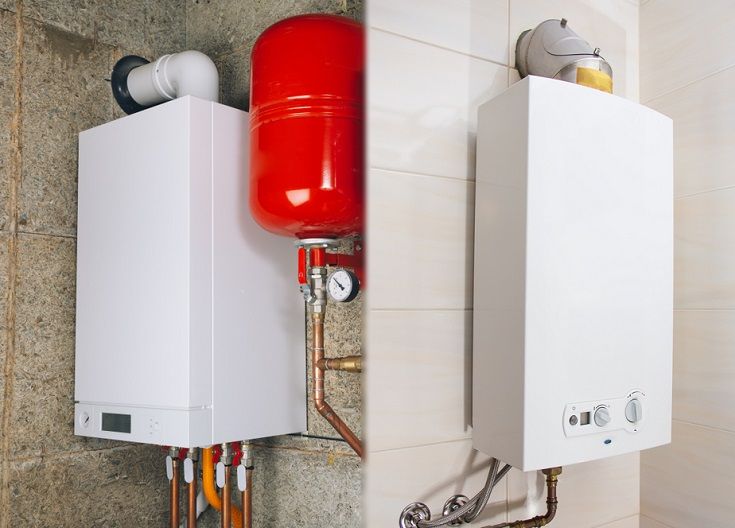What is the Cost to Replace a Water Heater in 2025?
-
Pete Ortiz
- Last updated:

A water heater is one of those things that we can take for granted at times. We use it every single day, but we don’t actually see it do its job—we just enjoy the benefits. Ever had the shower run cold while you’re in it? Whether it stops working entirely or just runs out of heated water, we sure don’t take it for granted when it stops doing its job!
The Importance of Home Maintenance
Most people don’t purchase a home without some idea of the maintenance that comes along with owning one. Nowadays, there are many guides online for everyday maintenance tasks around the house. Most homeowners can at least fumble through a DIY option to keep some of those hard-earned dollars in their pocket.
However, some things should be left to the professionals. Things like changing the roof, repairing the furnace, or changing the water heater are all pretty advanced projects that require specialized knowledge. And being professional services, these will all come with extra costs.
When it comes to some maintenance tasks at home, some things can be done as preventative maintenance, yet other projects eventually just come up. Luckily, these large, expensive projects don’t come up often!

How Much Does Replacing a Water Heater Cost?
Things involving trade skills such as construction, plumbing, heating, or electrical are a bit unpredictable because there isn’t any regulation regarding price like there is in many other industries.
However, unless a contractor is really undercutting their local competition, most will operate within some averages. This will give you a good idea of what kind of cost you can expect when changing your water heater.
The national average price sits around $1,200, including material and labor costs for the contractor. Although, prices can range from $800 to $1,800. Keep in mind this would be for a standard water heater, but most homes out there will have this type of water heater.
There are other technologies out now, such as tankless or solar-powered heaters. These different types will typically cost significantly more—especially because they will be an upgrade, not just a replacement.
Additional Costs to Anticipate
Suppose you decide to replace your water heater before it actually fails. In that case, chances are, there shouldn’t be any additional costs to worry about outside of the quote you get from your local plumber for their time and the materials.
However, it might be a different story if you wait until it fails. If your heater fails because a hole in the bottom rusts out, there could be a LOT of water damage. So, you will potentially have floor repairs and wall repairs to deal with. In extreme cases, if it’s not dealt with right away, the water damage could actually lead to structural repairs being necessary. These could run into the thousands! It’s unlikely that a water heater failure wouldn’t be noticed right away, though, unless it happened while you were on vacation.

How Often Should I Replace the Hot Water Heater?
Many people wait until it stops working entirely to replace their water heater. This is not generally the best idea. When does anything ever break down at a convenient time? Plus, if the heater breaks down due to a leak, then there is the potential for it to do additional damage.
As a general rule, if you’re running a gas water heater, it likely won’t last more than 10 years. So, if you’re getting close to that, it’s probably time to start considering your options for replacement. On the other hand, an electric heater will typically last 10–15 years. But the same rule applies. By the time you’re approaching that 15-year mark, you’ll want to think about replacing it before it breaks down.
Here are a couple of things to watch out for that may indicate that you will be replacing your water heater before its average lifespan:
- Rust: You can expect to change the heater early if you notice rust—particularly at the base.
- Leaks: Anything with water is prone to leaking. Many times, leaks are not super concerning, but if it’s happening a lot, then the heater may be doomed for an early grave.
- Not heating adequately: Some water heaters just don’t heat well from the beginning if a budget one was purchased. But if it has always heated well, then suddenly it’s not heating up as well or not heating as much water. You’ll probably be looking at replacing it in the near future.
Does Insurance Cover the Replacement?
There is no cut-and-dry answer for this question because home insurance policies vary so much. But as a general rule, homeowner’s insurance will not cover the replacement of the heater if it breaks down.
However, many insurance policies will cover damage that may result. For example, if your water heater springs a leak and damages flooring, then you may be covered for the water damage it causes. This coverage shouldn’t be underestimated because some of these heaters hold a lot of water which can result in thousands of dollars in damages.

Taking Care of Your Hot Water Heater
Your water heater’s lifespan is just an estimation or an average. You can do things to help it last as long as possible, though. The great thing is that most of these things are easily done by the average DIYer.
- Drain the water: Every 6 months or so, it’s a good idea to drain the water and wash out the sediment that builds up in the bottom of the tank.
- Lubricate the pump: The circulating pump is essential to your hot water system. Just like any other engine, it needs to be lubricated and runs best when it is.
- Adjust the temperature: If you’re not using it, there’s no reason to keep the water temperature high. If you plan to be away for more than a few days, either turn the water heater off or adjust the temperature to its lowest setting.
If you’re not comfortable with these types of DIY tasks, plumbing and heating professionals will offer reasonably-priced maintenance services. Some might even offer a deal if you arrange an ongoing service schedule for a set number of times annually.
 Closing Thoughts
Closing Thoughts
Over the last several years, just about everything has gone up in price. Hopefully, with this knowledge, you’ll be able to budget accordingly so you’re not caught off guard when you need to replace your water heater. With a little bit of preventative maintenance, you’ll be able to push back the need for it even further.
Featured Image Credit: Narah, Shutterstock
Contents


